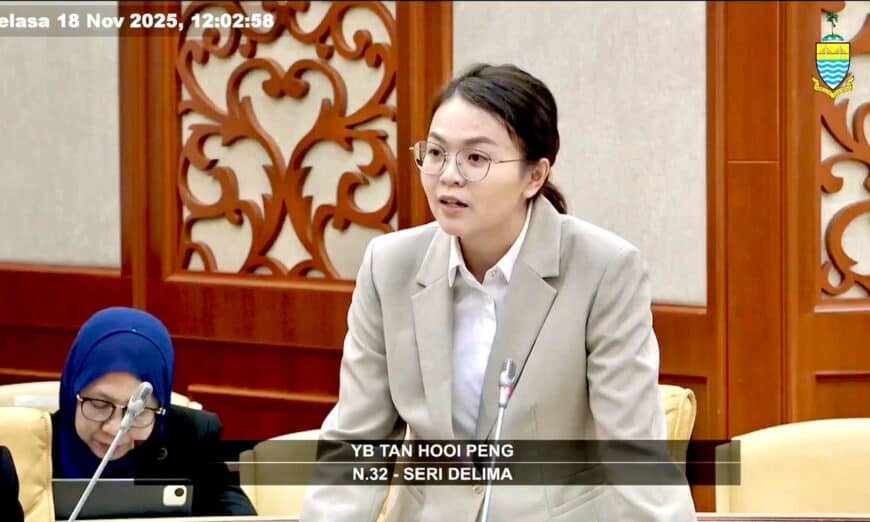SERI DELIMA assemblyman Connie Tan has called for bold, compassionate and gender-responsive policies to support Penang’s growing population of unpaid women caregivers, noting that the state is already among Malaysia’s fastest-ageing.
Tan (PH – Seri Delima) expressed strong appreciation for the Opposition Leader’s speech, which she said “finally placed a gender lens at the centre of policymaking”, particularly on workplace welfare, housing concerns, and health-related issues affecting women.
“The recognition that women are the backbone of families, and that their wellbeing is an investment in our future generation, is powerful and long overdue.
“YB Sungai Dua was the only male representative who spoke up on women’s welfare. I congratulate him for that,” she said in her debate speech during the State Legislative Assembly Sitting in Light Street today.
Tan drew attention to the increasingly urgent issue of women serving as unpaid caregivers in an ageing society.
She noted that Penang’s demographic profile is shifting rapidly, with eight percent of its population now aged 65 and above, placing the state among Malaysia’s earliest to reach ageing status after Perak.
Citing findings from the Khazanah Research Institute, Tan said that the vast majority of unpaid caregivers in Malaysia, between 60 and 70 percent, are women.
According to Tan, this pattern is reinforced by data from the Institute of Strategic and International Studies Malaysia, which reported that in 2022, some 3.2 million Malaysians remained outside the labour force or were only working part-time due to household or caregiving duties. An overwhelming 98 percent of them were women.
She highlighted that as Penang’s population grows older, this burden becomes even more pressing, with profound implications for women’s workforce participation and the state’s overall socio-economic resilience.
“This burden becomes even more critical as we face the challenges of an ageing society. When women are forced to leave the workforce to care for elderly parents or family members, the entire state loses talent, productivity, and economic strength,” she stressed.
Tan pointed to Singapore’s Caregiver Support Action Plan as an example of how governments can provide tangible relief.
Singapore’s approach includes monthly allowances for caregivers who support family members requiring daily assistance, along with subsidies for long-term care services, structured caregiver training, flexible work arrangements, and community-based eldercare centres that offer respite and social support.
She said the experience of Singapore demonstrates that the burden of caregiving can be eased through comprehensive and forward-looking policies that value the contribution of women while preparing society for the realities of an ageing demographic.
“Other countries have shown that it is possible to value care work and ease the pressure on families. Penang must not fall behind,” Tan said.
Hence, she has urged the state government to seriously explore the introduction of similar initiatives tailored to Penang’s needs and demographic realities.
“Seri Delima calls on the state to seriously consider these types of caregiver-support initiatives, not only in the name of gender justice, but for the long-term social resilience and wellbeing of the people of Penang,” she said.
She emphasised that supporting caregivers is not merely a matter of compassion but a strategic investment in Penang’s future as the state continues to age.
Story by Kevin Vimal

